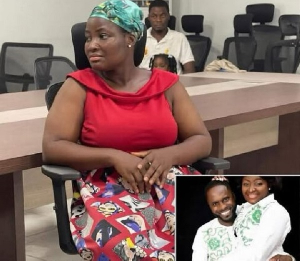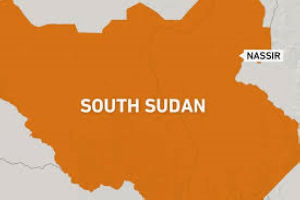By ROB HUGHES
JOHANNESBURG — Going into the first World Cup to be held on African soil, there were hopes that its countries would finally put on a strong showing, possibly getting two or three of its teams to the second round.
This weekend brings a change in tone and format, with those knockout rounds starting and the weakest weeded out, left to watch the big boys play. And once again, most of the continent’s teams are left in a familiar spot: On the outside looking in.
Whatever happened to the claim, by Pelé, the world’s most renowned player of all time, that before the end of the last century, or very early in this one, an African country would be champion of the world?
The story of Africa is that for the past 35 years it has been the continent of tomorrow, always hopeful that it can build organizations and harness its talent into teams that can compete with anyone.
But the continent’s countries find themselves hamstrung by a familiar problem: Its players are plucked up in adolescence by Europe’s rich clubs in much the same way that colonial powers came here for diamonds.
Who would have thought that France, long a colonial power, would be on the first plane out? And who would have predicted that the vast majority of African countries, including the host, would fail to make the second stage of the competition? As of Thursday morning, Ghana was the only one guaranteed to move on.
Ghana’s soccer federation rightly says that its team, like its soccer structure, is based on nurturing its own youth before foreign clubs entice them away. But with the exception of Ghana’s narrow victory over Serbia in its opening game, and apart from South Africa taking full advantage of France imploding, there has not been another victory among the 16 matches played by the six African teams.
Much has been said about Africa’s sporting development, or lack of it, during this tournament. The habit of countries qualifying on their own and then paying millions to imported coaches so they can offer their supposed greater wisdom for one last big push has backfired. Again.
Before this tournament, many regarded Ivory Coast as the African nation that could potentially advance the furthest. It is hard to see what the Swedish coach, Sven-Goran Eriksson, has done to justify the $3 million that he was paid to spend a few months with a squad that includes the Chelsea star Didier Drogba and other players who have proven themselves at Europe’s elite clubs.
It wasn’t Eriksson’s fault that Drogba broke a bone in his arm, but it is Eriksson’s responsibility that the Elephants, as the Ivory Coast squad is known, performed like mice.
A mercenary who has flitted from the national teams of England to Mexico and then to Africa, receiving enormous payoffs for little return, Eriksson had too little time, and perhaps too little knowledge of African culture, to make a significant impact here.
The illusion that foreign coaching might help Africans discover themselves was demolished by Simaata Simaata, general secretary of the Zambia Football Coaches Association. Speaking to my colleague Christopher Clarey, Simaata said: “It’s like saying David Livingstone discovered the Victoria Falls. No, David Livingstone was the first European to see the Victoria Falls. There were already local people who knew where the mighty wonder of the world existed, and they were the local scouts who knew the terrain.”
For David Livingstone, perhaps, substitute Stanley Rous. A former English school teacher who rose from a soccer referee to be president of FIFA in the late 1960s and early ’70s, he was the first to say that Africa would be a power in the global game.
Rous, a man given to Churchillian rhetoric, overestimated the sporting prowess of Africa, but he underestimated the politics that resulted in him being removed from office. João Havelange, supported by Sepp Blatter, then FIFA general secretary, saw the power in Africa as something else.
He saw the power of Africa’s 53-member bloc, an organization that has 208 national or territorial associations. Win the African vote, and you are well on the way to winning the FIFA presidency.
Havelange courted Africa with promises of a greater distribution of FIFA funds in 1974. He and Blatter were omnipresent when South Africa hosted the 1996 African Cup of Nations soon after Nelson Mandela became the head of state, and now Blatter has succeeded Havelange in office.
The pledge made to Mandela then — to help South Africa’s transition after apartheid — is being delivered by the World Cup today.
The cash that FIFA promised, not just to Africa but to every continent from its television and sponsorship income, has helped build some local soccer headquarters and many playing fields. But in many countries on this continent there are no visible signs of where that money went. And the traffic of players out of Africa to play professionally for teams in Europe has not benefited Africa, either.
Yes, there are gestures, like Drogba donating $3 million of his fortune to build a hospital in Ivory Coast, which he left as a teenager to find his way through French soccer before becoming one of the most-recognized and highest-paid athletes in the world with Chelsea.
It was naïve, however, to expect that taking the stars out of Africa and throwing some money at it in return would raise standards or stimulate grass-roots coaching.
We see it as this tournament unfolds. Walk through Soweto and you see how government funding and tourism have transformed living standards. But visit other townships, and ghettos are still ghettos. White rule has ended, but inequality lingers.
Until that inequality is gone, the question of why South Africa’s youth systems can produce champions in rugby and cricket but not field a competitive soccer team is not even worth asking.
The country, the continent, is talent rich, but organization poor. Without that, you can’t win a World Cup.
Sports Features of Thursday, 24 June 2010
Source: --












